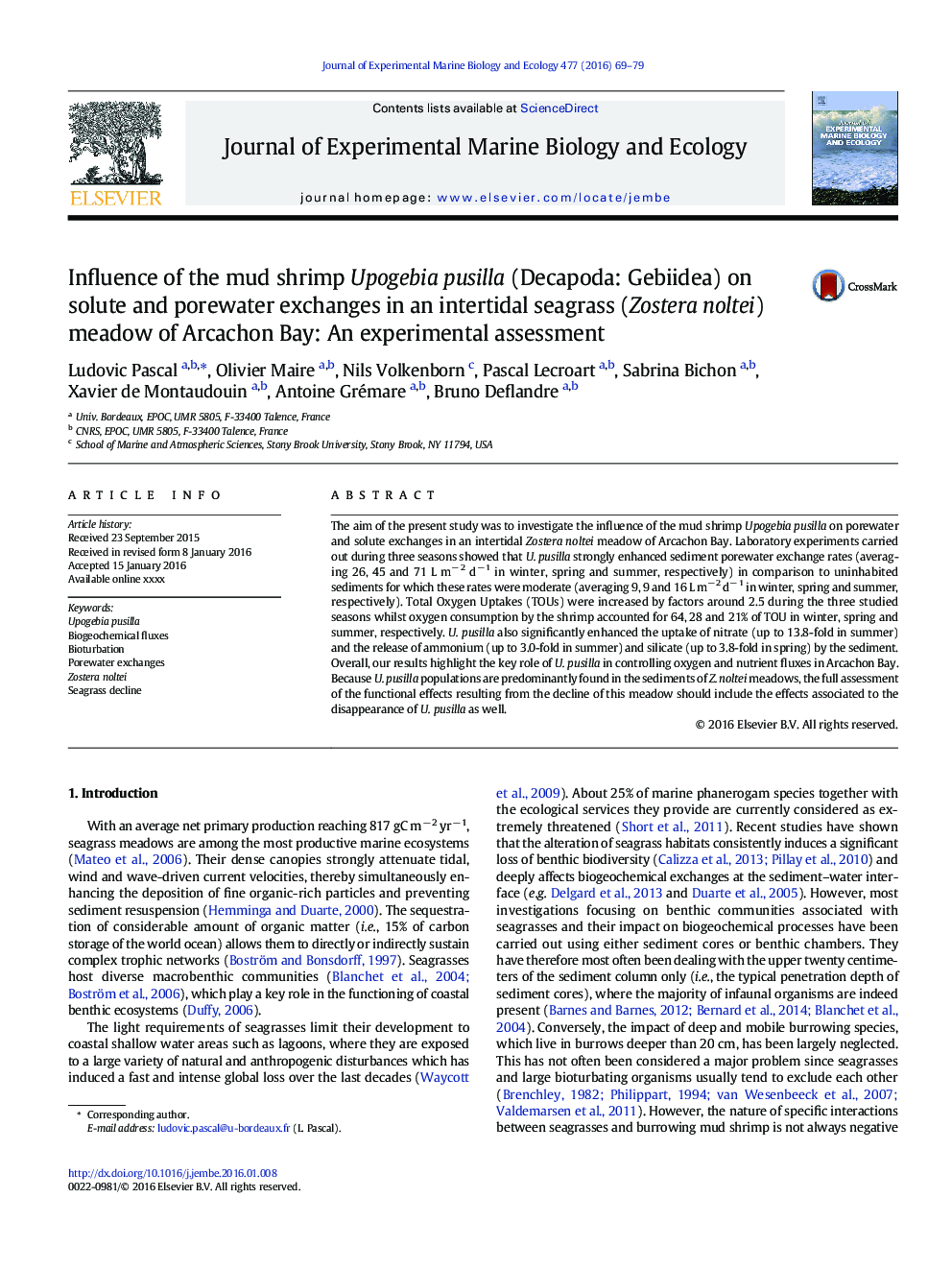| Article ID | Journal | Published Year | Pages | File Type |
|---|---|---|---|---|
| 6303755 | Journal of Experimental Marine Biology and Ecology | 2016 | 11 Pages |
Abstract
The aim of the present study was to investigate the influence of the mud shrimp Upogebia pusilla on porewater and solute exchanges in an intertidal Zostera noltei meadow of Arcachon Bay. Laboratory experiments carried out during three seasons showed that U. pusilla strongly enhanced sediment porewater exchange rates (averaging 26, 45 and 71 L mâ 2 dâ 1 in winter, spring and summer, respectively) in comparison to uninhabited sediments for which these rates were moderate (averaging 9, 9 and 16 L mâ 2 dâ 1 in winter, spring and summer, respectively). Total Oxygen Uptakes (TOUs) were increased by factors around 2.5 during the three studied seasons whilst oxygen consumption by the shrimp accounted for 64, 28 and 21% of TOU in winter, spring and summer, respectively. U. pusilla also significantly enhanced the uptake of nitrate (up to 13.8-fold in summer) and the release of ammonium (up to 3.0-fold in summer) and silicate (up to 3.8-fold in spring) by the sediment. Overall, our results highlight the key role of U. pusilla in controlling oxygen and nutrient fluxes in Arcachon Bay. Because U. pusilla populations are predominantly found in the sediments of Z. noltei meadows, the full assessment of the functional effects resulting from the decline of this meadow should include the effects associated to the disappearance of U. pusilla as well.
Related Topics
Life Sciences
Agricultural and Biological Sciences
Aquatic Science
Authors
Ludovic Pascal, Olivier Maire, Nils Volkenborn, Pascal Lecroart, Sabrina Bichon, Xavier de Montaudouin, Antoine Grémare, Bruno Deflandre,
